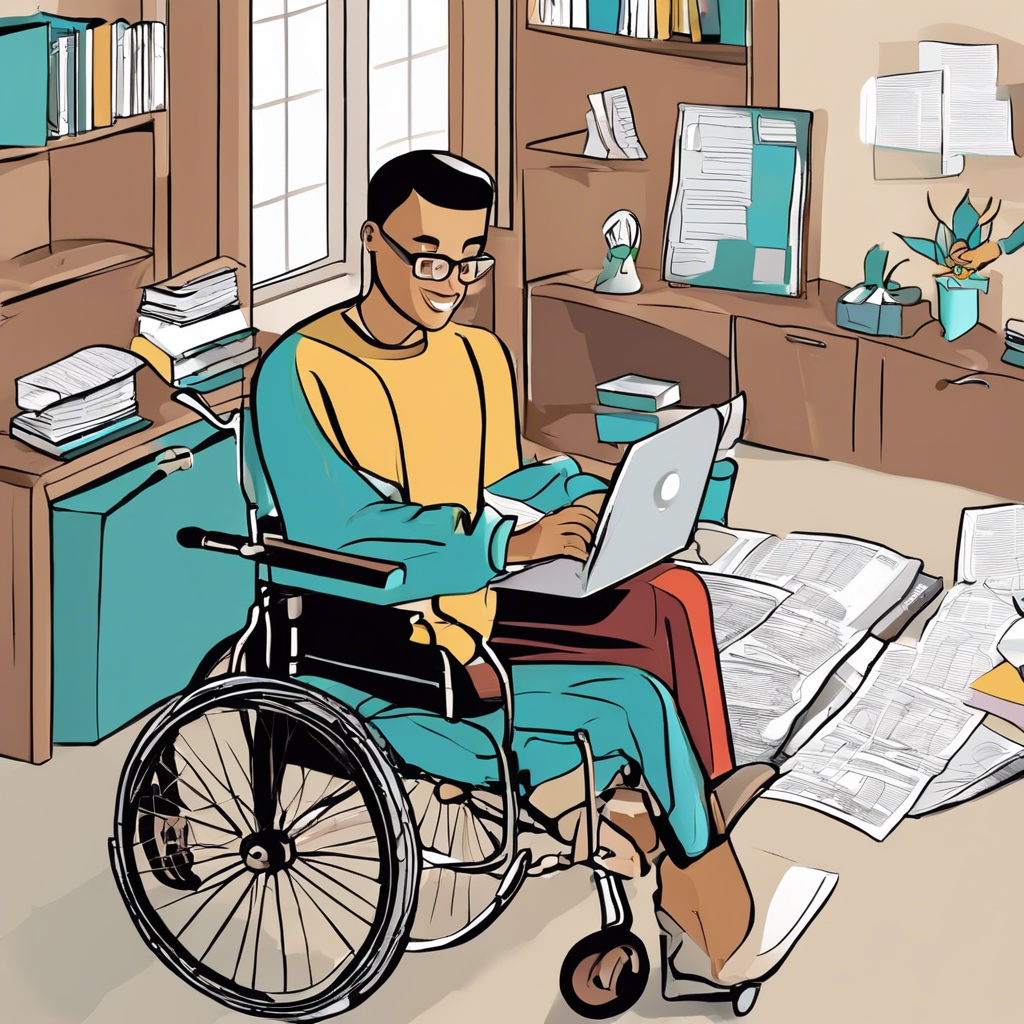Online college for disabled students has become an increasingly popular option for individuals seeking higher education while overcoming physical or cognitive challenges. With the advancements in technology and the growing awareness of accessibility, more online colleges and universities are offering inclusive programs tailored to meet the needs of disabled students. These online platforms provide a supportive and flexible learning environment that empowers students to pursue their academic goals without the barriers often faced in traditional brick-and-mortar institutions.
One of the key advantages of online college for disabled students is the flexibility it offers in terms of scheduling and pace of learning. Traditional classroom settings can be challenging for individuals with disabilities due to physical limitations or the need for specialized accommodations. Online courses allow students to access lectures, assignments, and resources from anywhere with an internet connection, enabling them to study at their own pace and on their own terms.
Moreover, online colleges often provide a range of assistive technologies and tools to support disabled students in their academic pursuits. These may include screen readers, speech-to-text software, adaptive keyboards, and other assistive devices that help students with visual, auditory, or motor impairments navigate the online learning environment effectively. By incorporating these technologies into their programs, online colleges create an inclusive and accessible space for disabled students to thrive academically.
In addition to technological support, online colleges for disabled students also offer personalized accommodations and support services to meet individual needs. Disability support offices provide guidance on accessing accommodations such as extended testing time, alternative formats for course materials, and communication assistance. Faculty members are trained to work with disabled students and ensure that they have equal opportunities to succeed in their courses.
Furthermore, online colleges prioritize creating a welcoming and inclusive community for disabled students through peer support networks and online forums. These platforms allow students to connect with others facing similar challenges, share experiences, and seek advice from peers and mentors. Building a sense of community and belonging is essential for disabled students to feel supported and motivated throughout their academic journey.
Another significant benefit of online college for disabled students is the opportunity to learn in a comfortable and familiar environment. Many disabled individuals may face barriers in physical spaces, such as inaccessible buildings or transportation challenges. Online learning eliminates these obstacles, allowing students to focus on their studies without the stress of navigating physical environments that may not be designed with their needs in mind.
Moreover, online colleges often offer a wide range of degree programs and courses, giving disabled students the flexibility to pursue their interests and career goals. Whether studying humanities, STEM fields, business, or healthcare, online colleges provide diverse academic options that cater to a variety of interests and abilities. This diversity allows disabled students to explore different fields and find their passion without limitations.
Additionally, online colleges for disabled students promote self-advocacy and independence by empowering students to take control of their educational journey. Through online resources, workshops, and support services, students learn valuable skills in self-advocacy, time management, and communication, which are essential for success in higher education and beyond. By fostering autonomy and agency, online colleges prepare disabled students for future career opportunities and personal growth.
Furthermore, online colleges prioritize creating an inclusive curriculum that reflects diverse perspectives and experiences, including those of disabled individuals. Courses may incorporate disability studies, accessibility principles, and inclusive design concepts to raise awareness and promote understanding of disability issues among all students. By integrating these topics into the curriculum, online colleges foster a culture of inclusivity and respect for diversity.
Moreover, online colleges often collaborate with disability advocacy organizations and experts to enhance their support services and ensure that disabled students receive the resources they need to succeed. By partnering with external stakeholders, online colleges can stay informed about best practices in disability accommodation, accessibility standards, and assistive technologies, ultimately improving the learning experience for all students.
In conclusion, online college for disabled students offers a transformative educational experience that empowers individuals to pursue their academic aspirations and achieve their full potential. By providing flexible learning options, technological support, personalized accommodations, and inclusive community spaces, online colleges create a welcoming and accessible environment where disabled students can thrive. Through self-advocacy, independence, and a diverse curriculum, online colleges prepare disabled students for success in higher education and beyond. As the landscape of higher education continues to evolve, online colleges play a crucial role in promoting inclusivity, diversity, and equity for all learners, regardless of their abilities or challenges.
